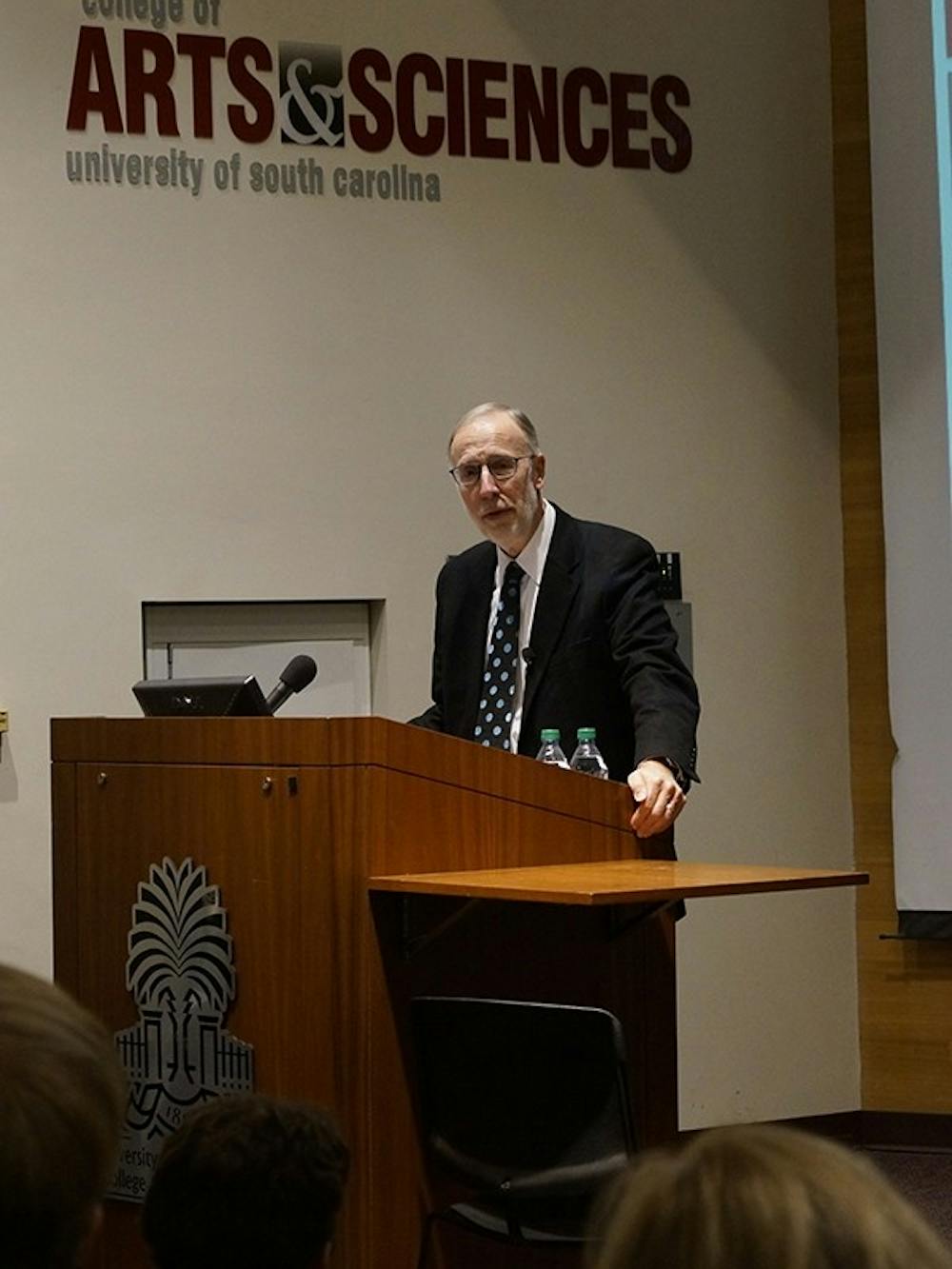Washington Post correspondent talks presidential politics
The way Dan Balz sees it, the U.S. is starting to get to the core of who President Barack Obama is.
Obama came into the presidency with aspirations to bring Democrats and Republicans together, said Balz, the Washington Post’s chief correspondent, who’s covered presidential politics for more than 30 years.
But in recent years, he’s been changed by tough debates, like those over the debt ceiling and health care, all spurred by deep political divisions.
“Political polarization is a fact of life at this point,” Balz said.
Now, Balz said in the Gambrell Auditorium Wednesday evening, with the backing of a successful reelection bid, Obama’s acting tougher.
He was firm on his insistence that top earners pay more taxes throughout the fiscal cliff negotiations, he’s refused to debate the debt ceiling again and in the wake of the Newtown school shooting, he proposed a more ambitious set of gun control measures than many observers expected — all positions he wouldn’t have taken in his first term, Balz said.
And in his inaugural address Monday, Obama “articulated a liberal vision we hadn’t heard before,” Balz said.
That included speaking aggressively of the need to act on climate change and naming Stonewall — the site of the 1969 riots that sparked the gay rights movement — alongside Seneca Falls, N.Y., and Selma, Ala., where pivotal moments in the women’s and civil rights movements unfolded.
With that rhetoric, Obama didn’t seem to speak to the American populace at large, Balz said in USC’s annual Buchheit Family lecture.
Instead, it seemed to be targeted at Obama’s coalition of voters and spoken with a belief that history was on his side, Balz said.
And it’s the makeup of that coalition that has sent the Republican Party into a period of soul-searching, he said.
The U.S. electorate is increasingly composed of minority voters, who tend to vote for Democratic candidates, he said.
But the real question facing Republicans is what vision they offer American voters, Balz said.
In 2012, the GOP lost what Balz called “a historic clash of visions” — over taxes, spending and the role of government.
That leaves the party looking for candidates who can offer a new vision for the GOP.
And as they search, Balz thinks Republicans will find a strong field of contenders, a group that was a cycle too young to run last year, like New Jersey Gov. Chris Christie or Louisiana Gov. Bobby Jindal.
At the same time, the Democrats could find themselves with a dearth of young prospects, Balz said. So far, the party’s list of possible candidates, like Vice President Joe Biden and Secretary of State Hillary Clinton, has bent toward older politicians.
But no matter how the 2016 field shakes out, Balz said that for any candidate to be successful, he or she will need to offer a compelling vision for his or her party, which Republican candidate Mitt Romney wasn’t able to do in 2012.
“The successful candidates are the ones that define their party in some fresh and new way,” Balz said. “I think in so many ways, Mitt Romney was defined by the Republican Party.”

